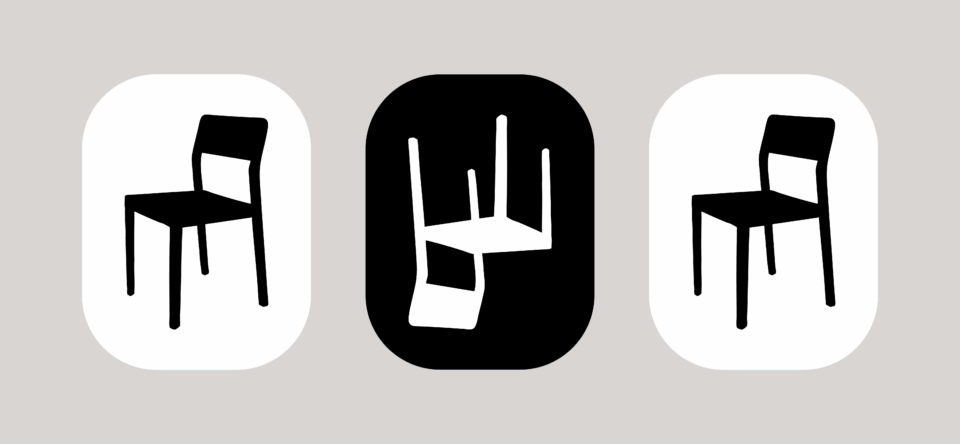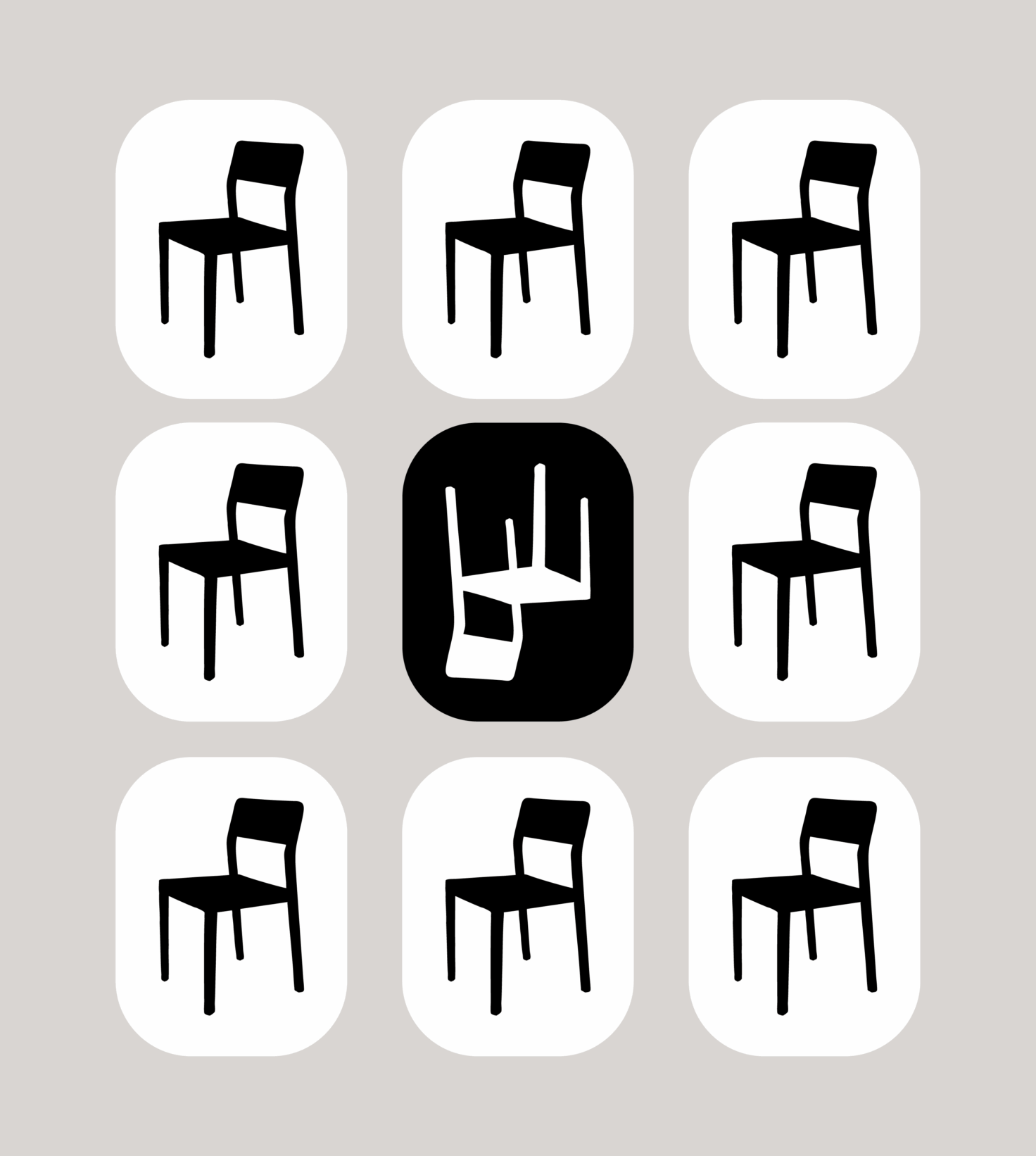Does everyone here have blue eyes? Out of a dozen writers, the only brown eyes were those of the two writers of color—mine and a Black writer’s. What in the Punnett square was this nonsense?
Blue eyes are a famously recessive gene, yet somehow, blue-eyed white people managed to wildly over-index at this network sitcom. How’d they do that? Seats at a TV writers’ table are objectively impossible to come by. At my new member orientation for the Writers Guild of America, I was told that the average person has a greater chance of winning the World Series than becoming a member of the Writers Guild. Did Hollywood have some kind of secret program for eye color “diversity” that I didn’t know about? Did these blue-eyed people call themselves eyes of color (EOC)?
When I arrived at my new job that morning, I had my first run-in with coworkers just outside my office door. An older man and a younger woman were having a boisterous conversation. I stopped to introduce myself, but they were laughing so hard they didn’t acknowledge me, so I kept walking. Before I took two steps, the man addressed me mid-laugh: “Hey, I just complimented her shirt! Uh-oh! Is that okay? Are you going to report me to HR?”
They erupted in laughter. Not even a knowing glance from the younger woman.
I think he wanted me to “yes, and” his “joke,” but I didn’t find it funny. This was at the height of the #MeToo movement, so it threw me off. I said, “What?” He repeated himself. All I could muster was a half-hearted chuckle.
Sigh. This was not a good sign.
It was tough not to feel like the new kid at school. I was the only new blood for season eight of this well-oiled machine, one of the last old-school family sitcoms still standing. The showrunner allowed me to start a week later than everyone else, so I could honor a couple of out-of-town stand-up gigs. Before the job even started, I was out of step with the group.
I got the job because the showrunner, the head writer who also runs the entire production and its budget, wanted an Asian American voice like mine to write for the new Hong Kong exchange student character. During the previous season, he had me read scripts as a “sensitivity reader” and cultural consultant because respected Asian American community members in entertainment recommended me. So the upgrade to a full-time staff writing job felt like a tremendous opportunity.
But I almost didn’t say yes to the offer, even though thousands of people would’ve killed for a seat at the writers’ table. The show’s star was a conservative American, red-state darling who loved to use the words “Nancy Pelosi” as a punchline. I was a fan of live-audience multicamera sitcoms, but the star’s point of view felt so far away from who I was—a Taiwanese immigrant woman who had once started a socialist collective. Could I write from his perspective? I weighed the benefits of signing on for 22 episodes and nine months of my life: I’d get paid a hefty bit of money, be home enough to keep my plants alive, and learn from veteran sitcom writers who made all the shows I grew up watching—shows that taught five-year-old immigrant Jenny how to speak English—while eating an unlimited supply of Trader Joe’s trail mix. Fuck it. I said yes. How bad could it be?
We broke for lunch, and like any new kid, I got a little nervous. Where do I go? Who do I hang with? I could’ve easily locked myself away in my office. Mercifully, in a room dominated by white-haired, executive producer–level boomers—the Old Heads—a handful of the younger writers invited me to their lunch table. That felt nice.
The lunch crew ate on the narrow second-floor balcony of our Spanish-style office—a balcony so narrow, the long table forced everyone to sit side by side, facing outward like it was the Last Supper. But when I got back with my sandwich that first day, the table was packed. Apparently, Jesus did not have room for a 13th apostle.
Oh, crap. It was too crowded. “I’ll just eat inside.” “No,” they insisted. “It’ll be fine.” A coworker rolled out an office chair for me. With no room at the long table, I ate with my food on my lap.

